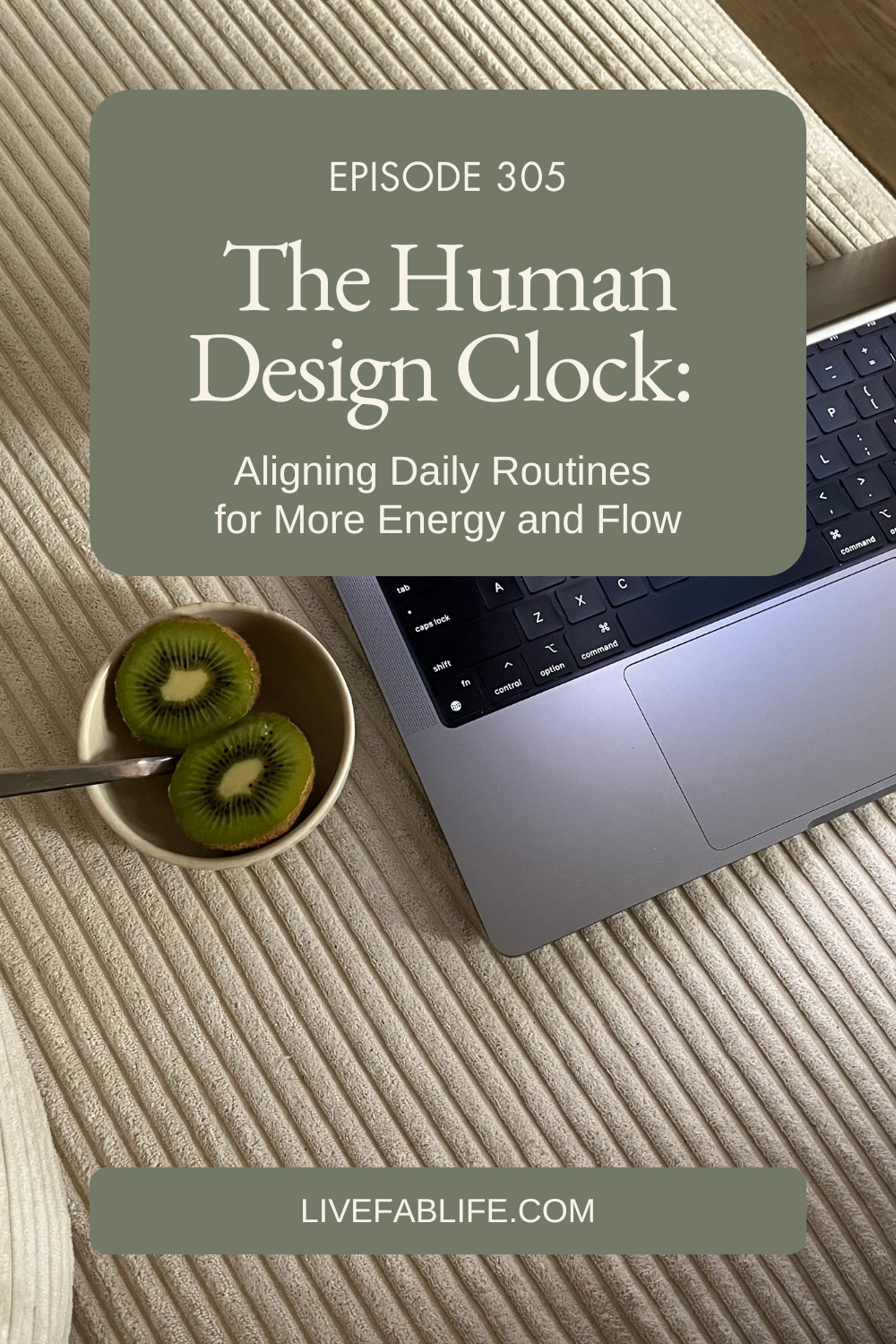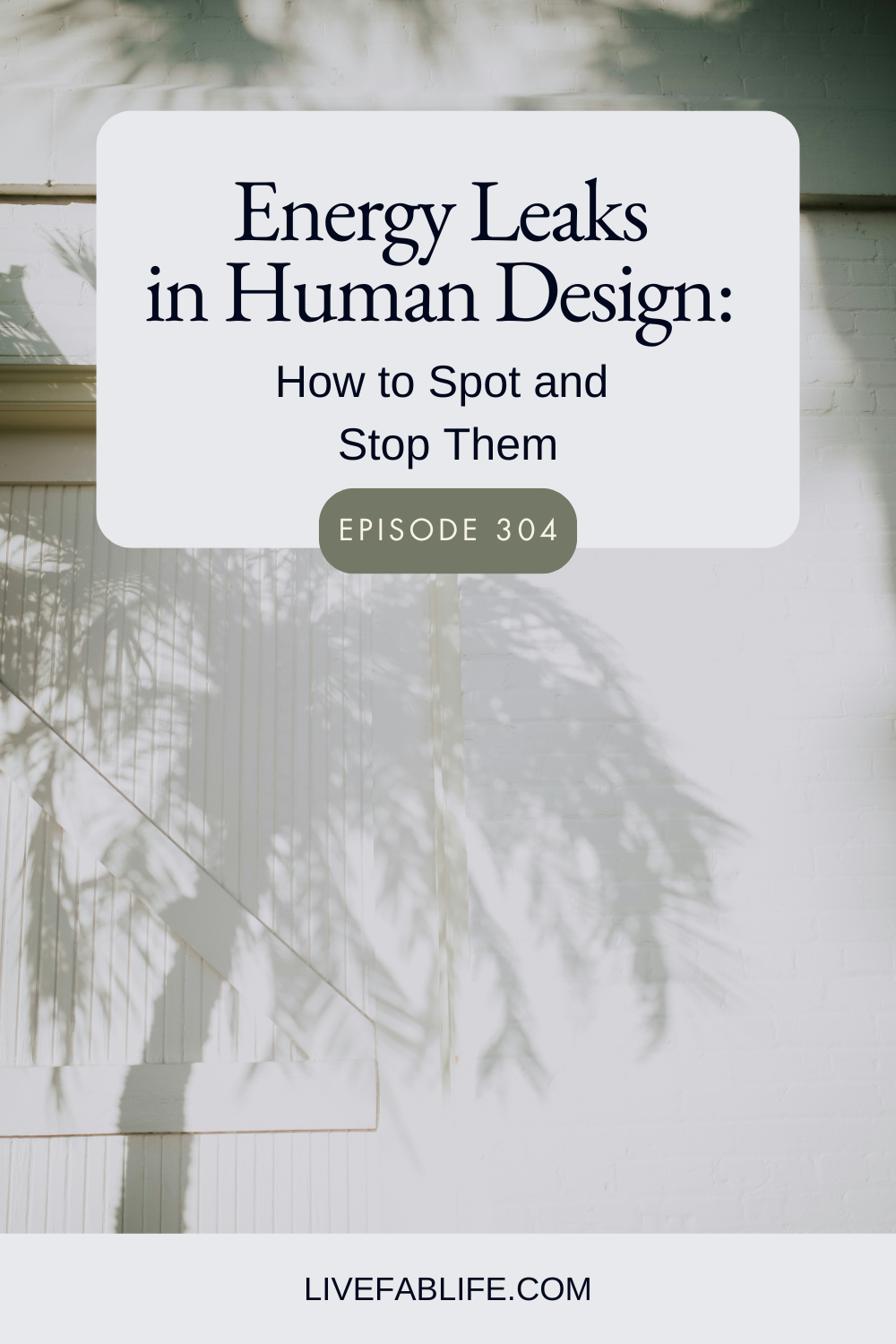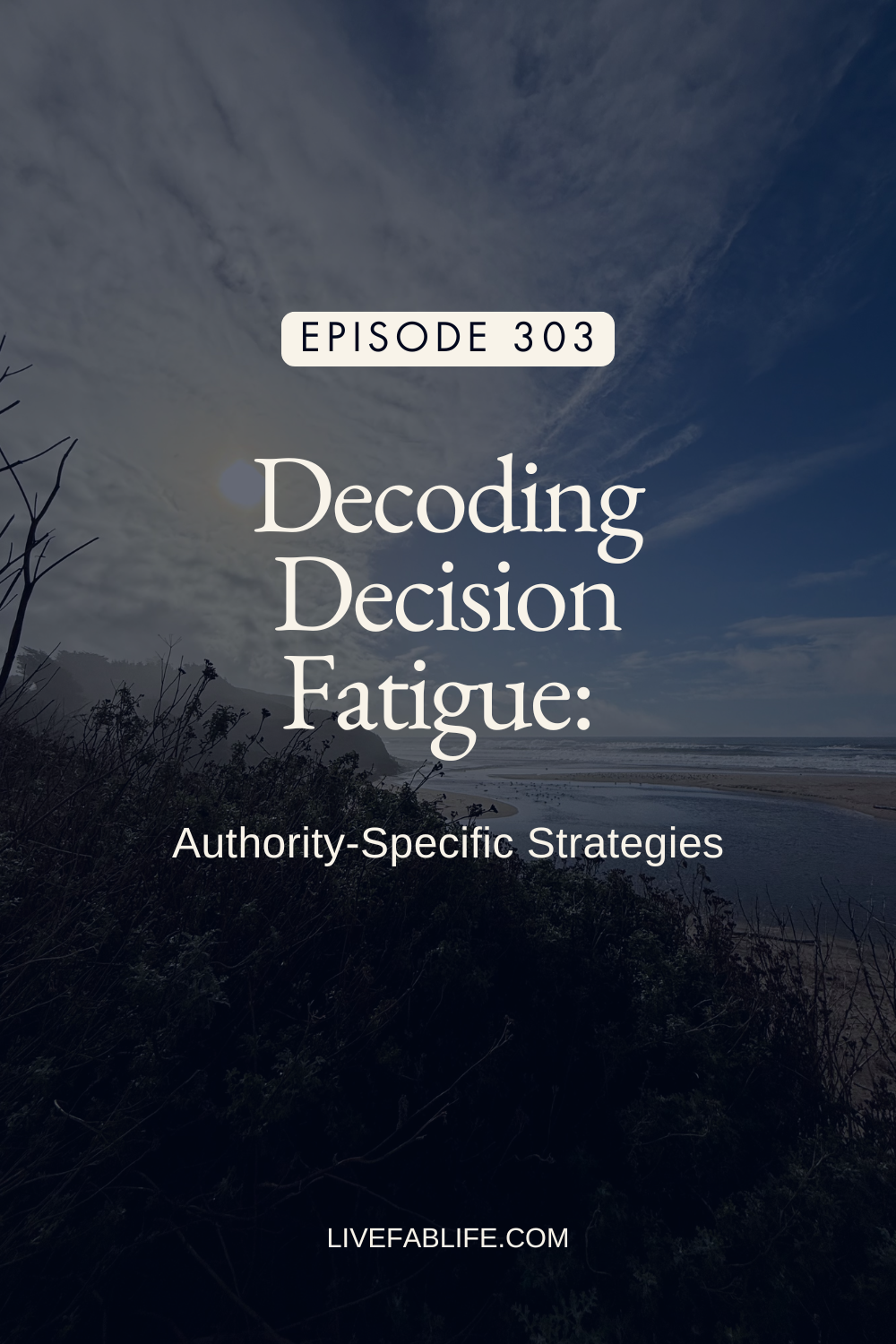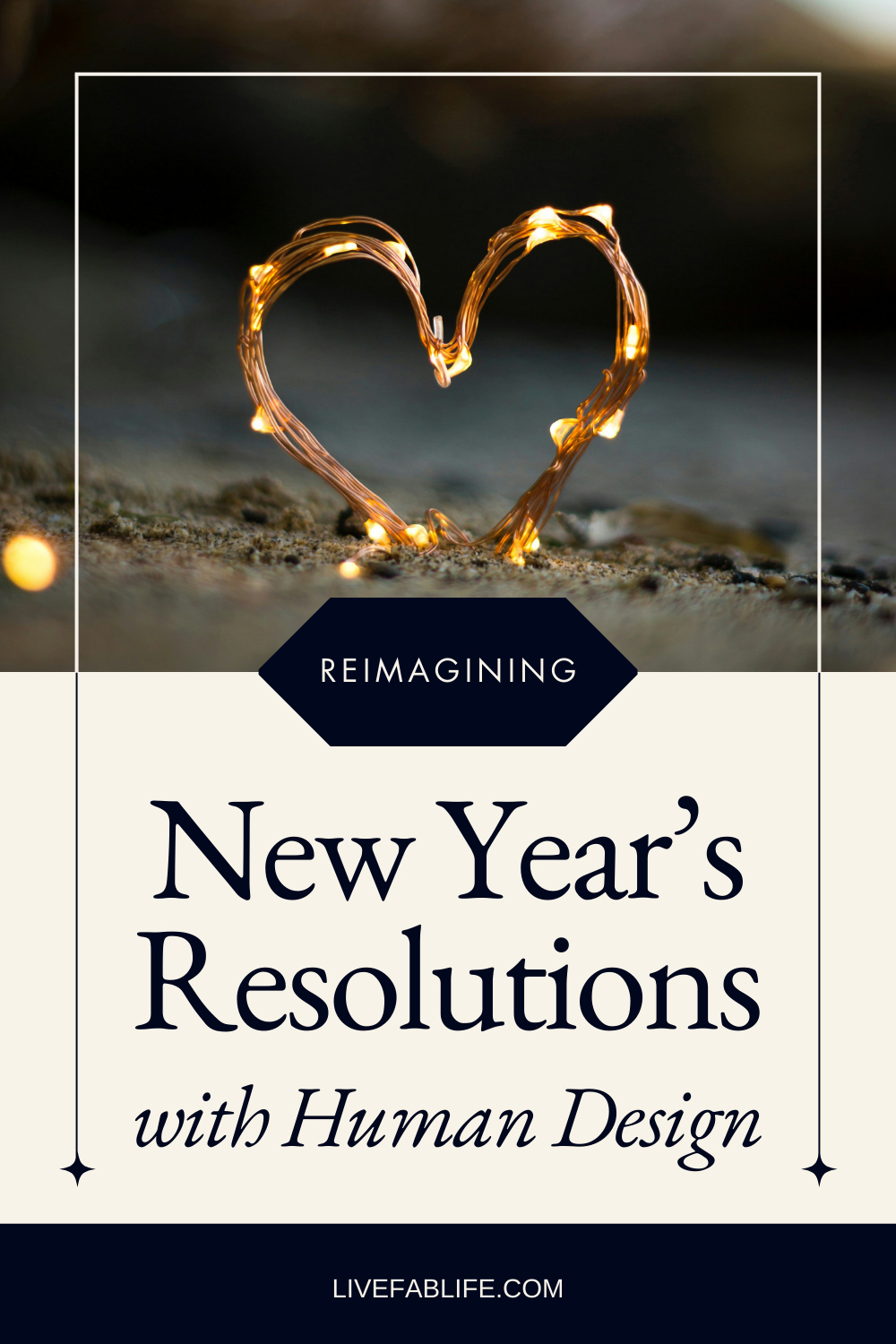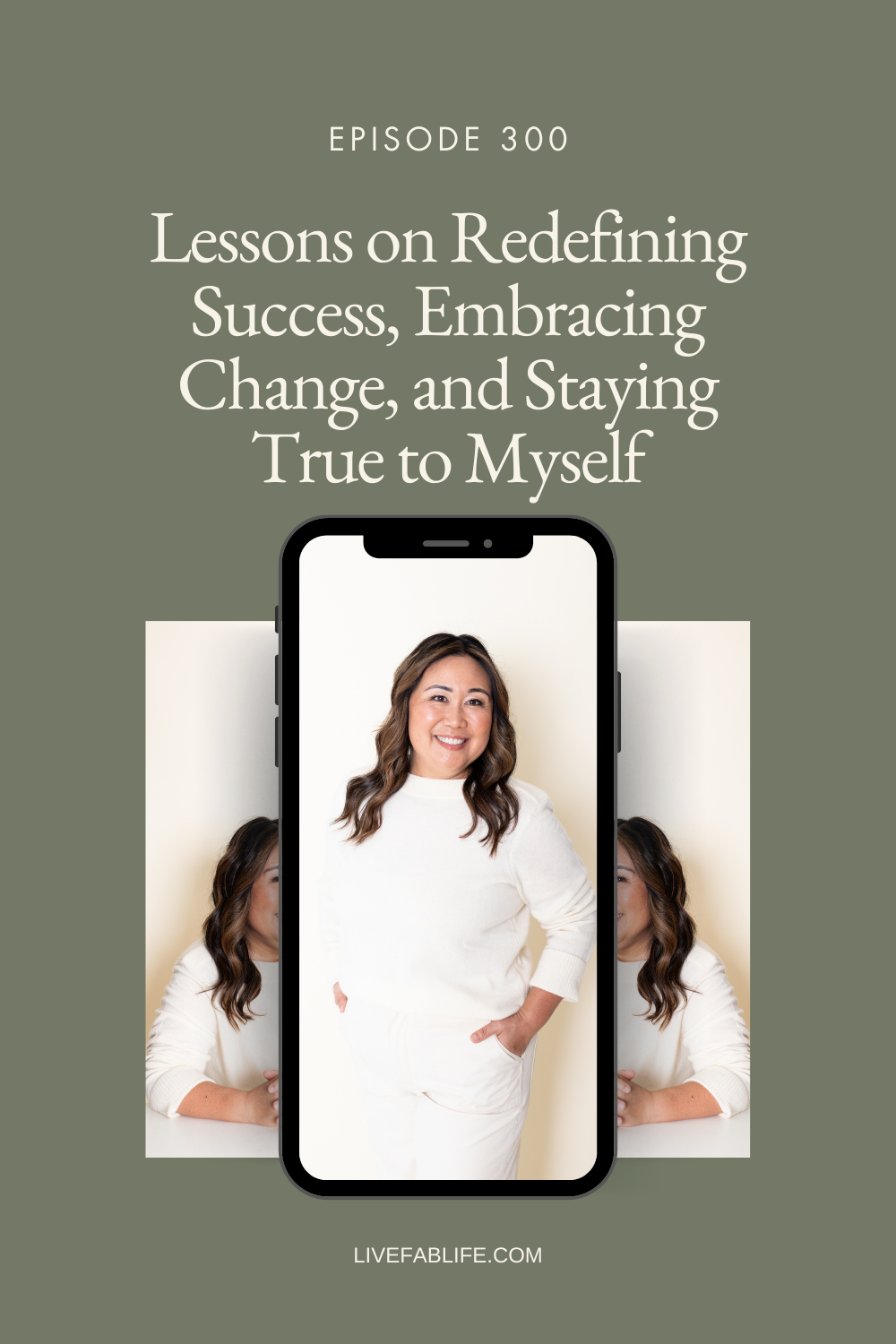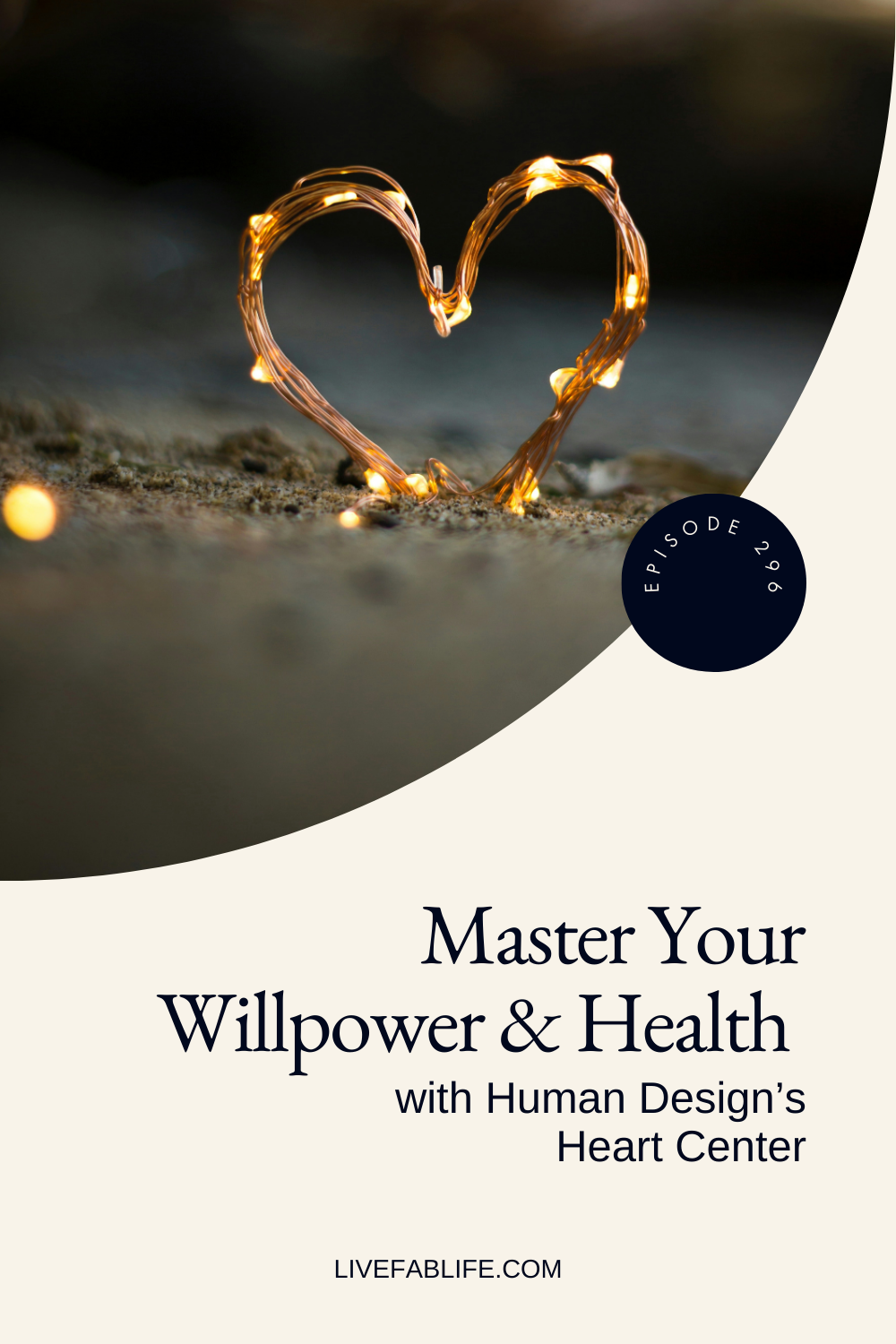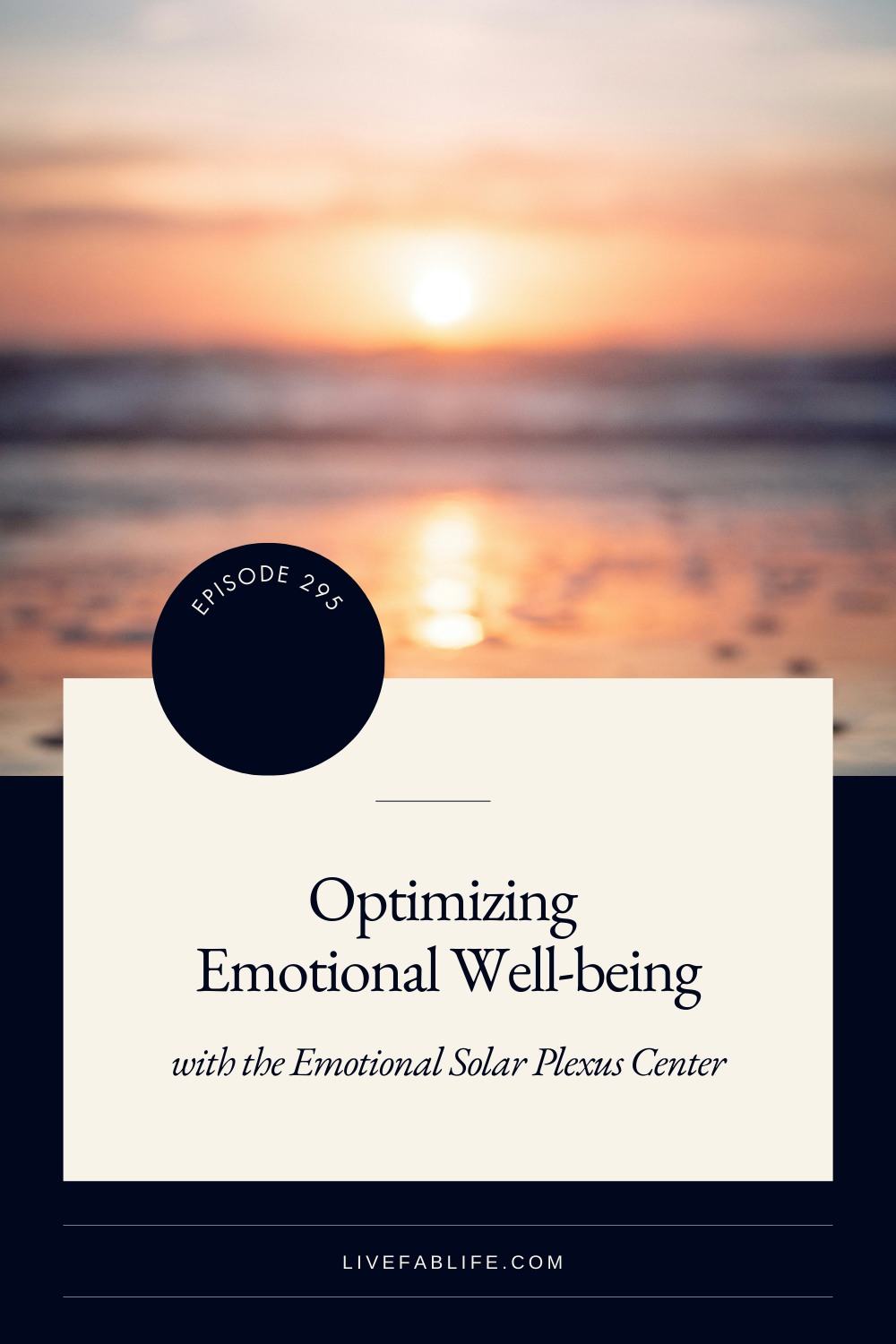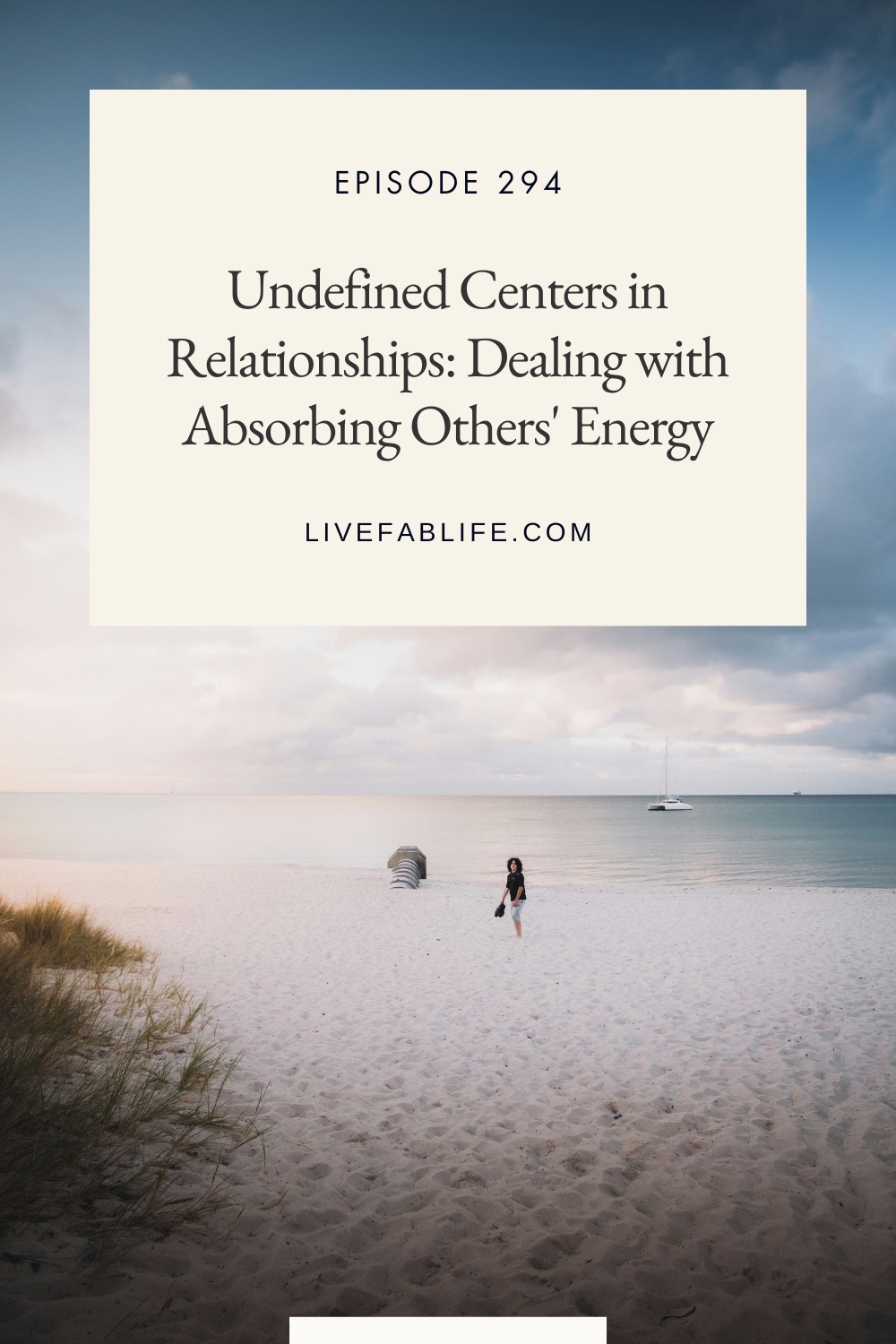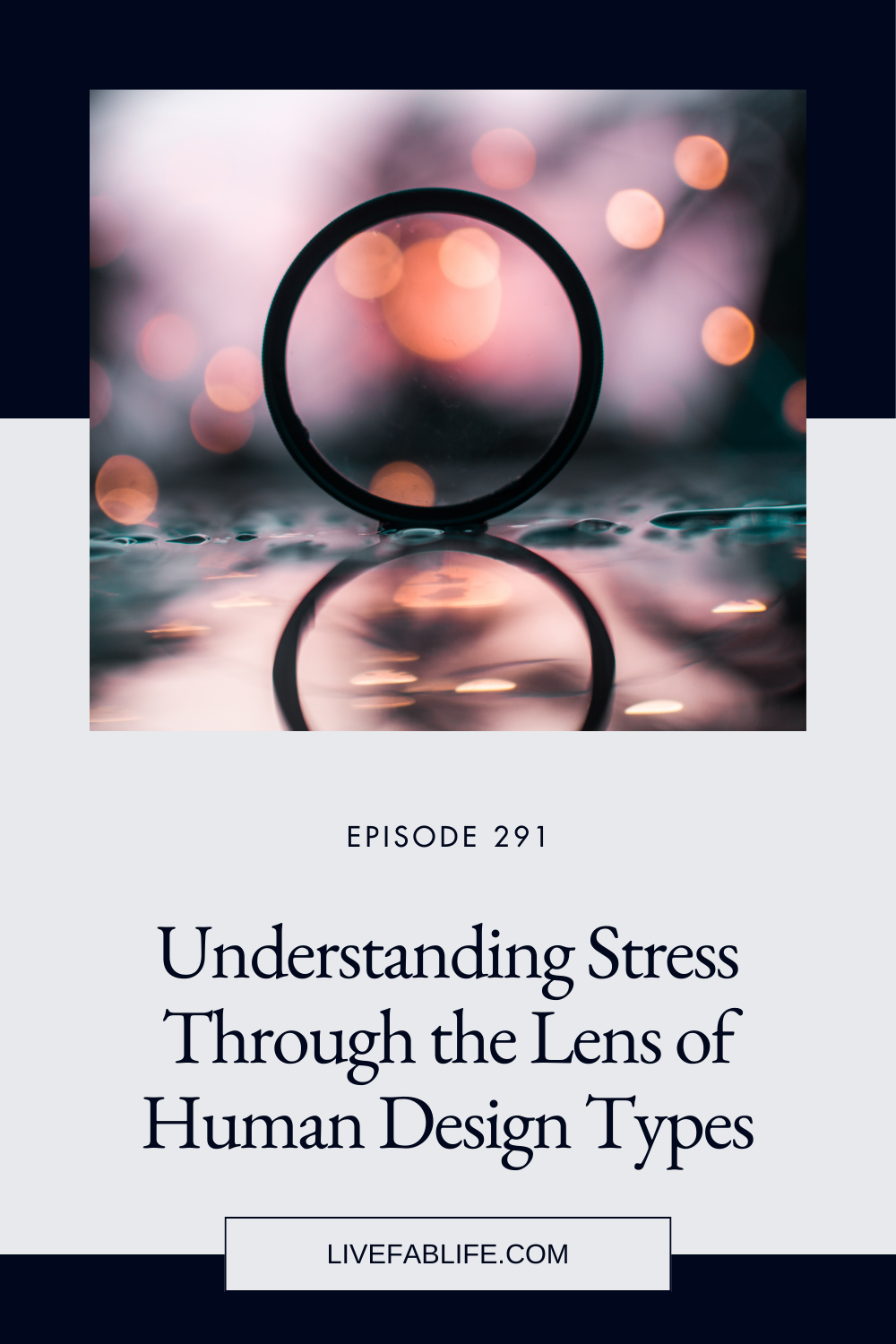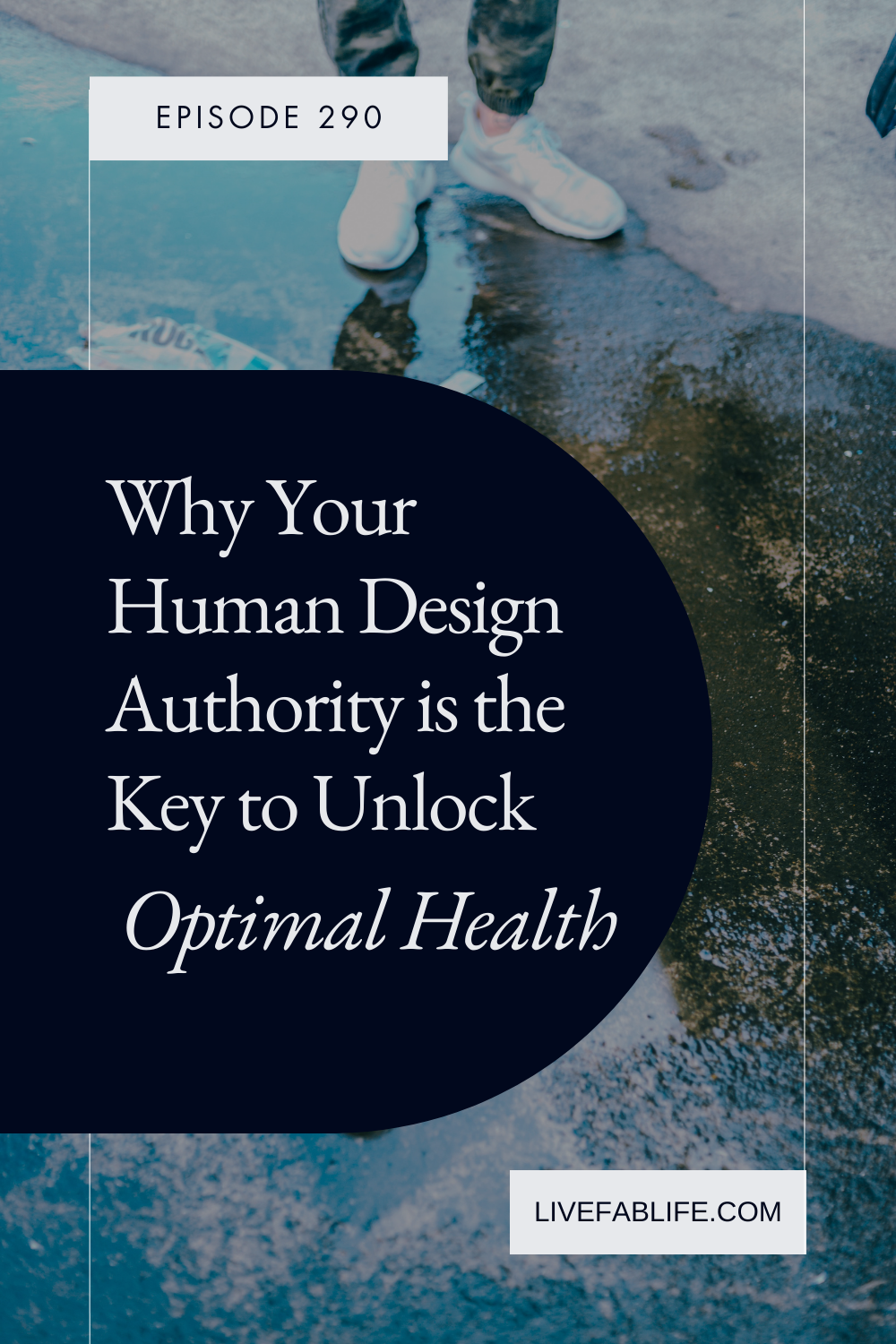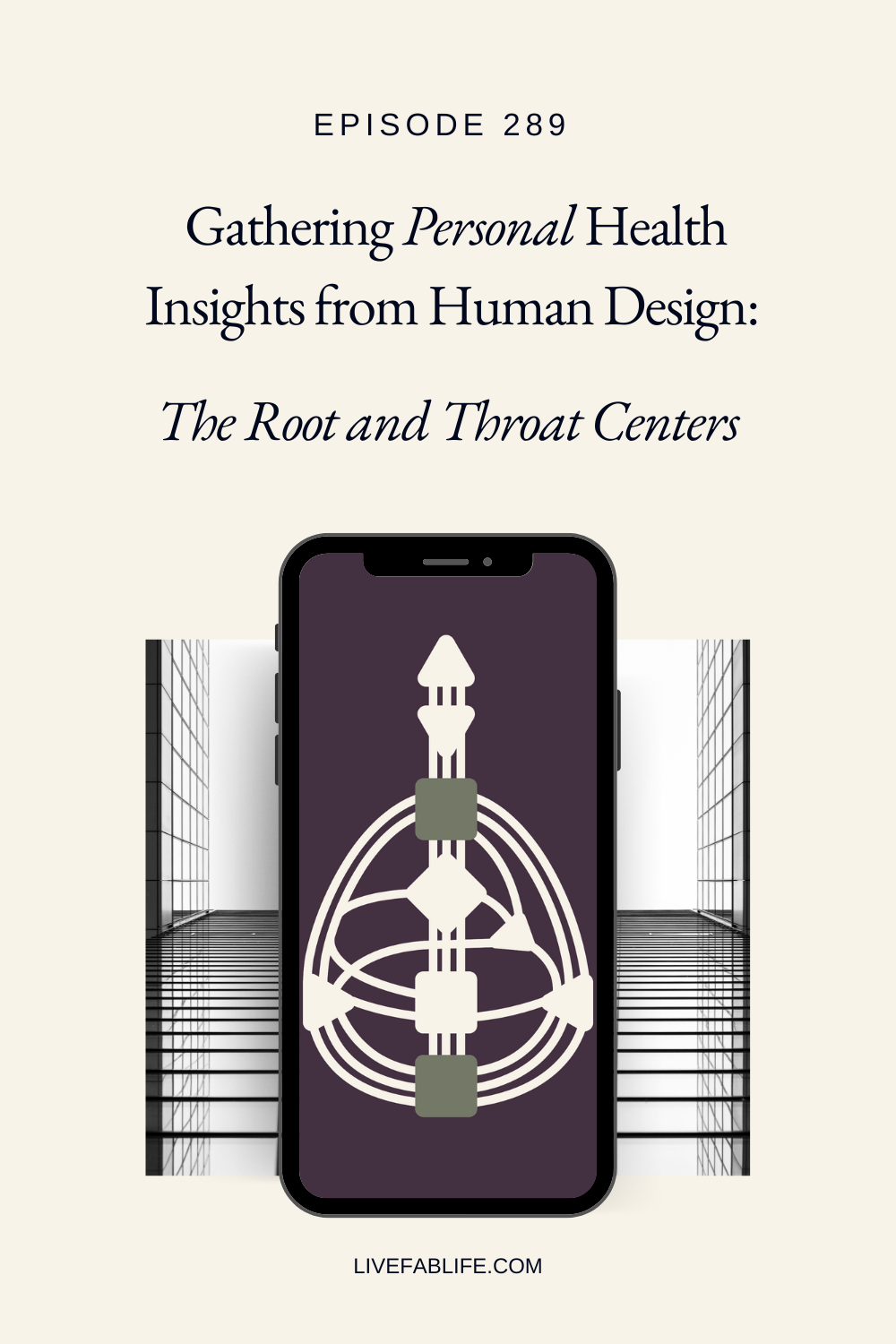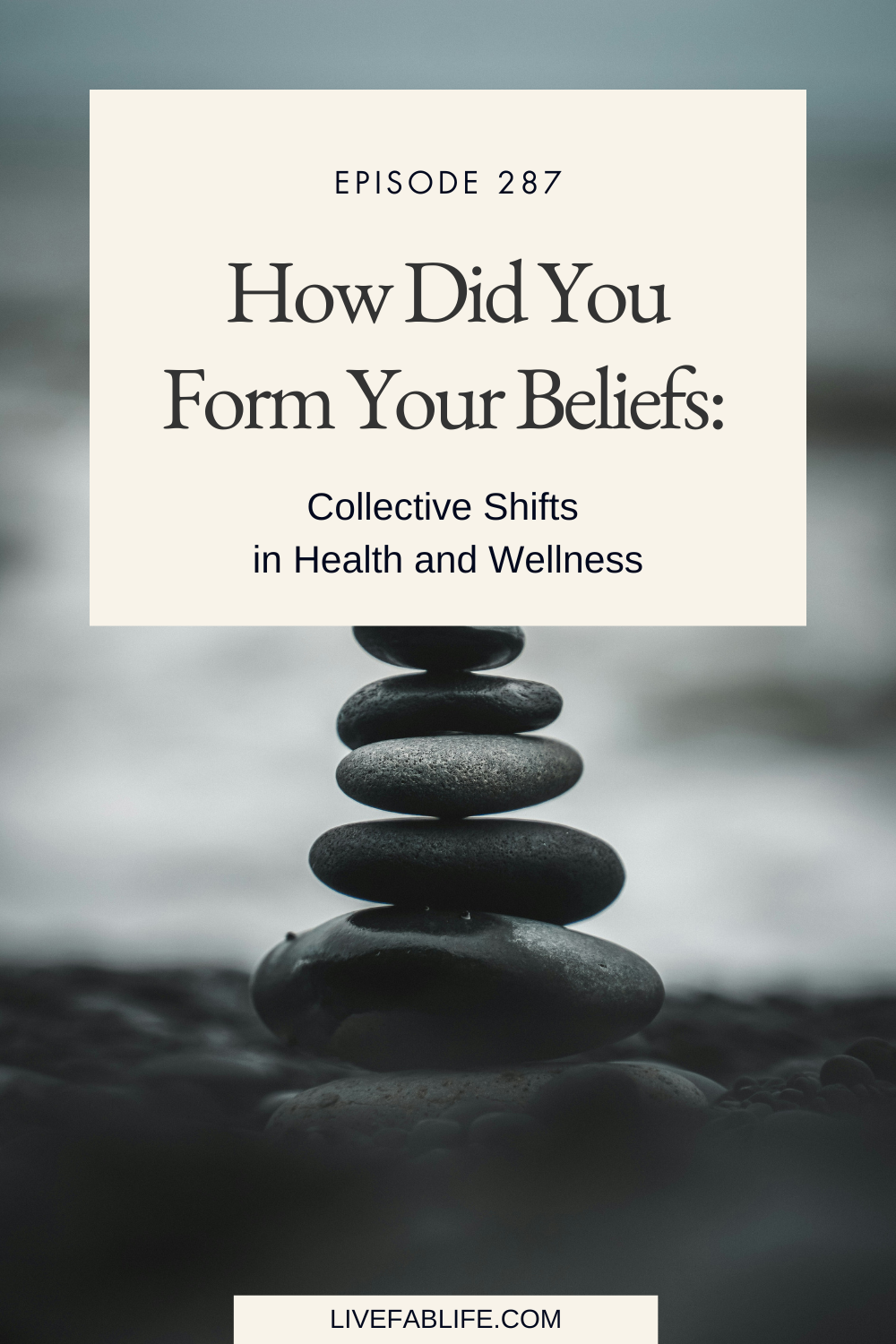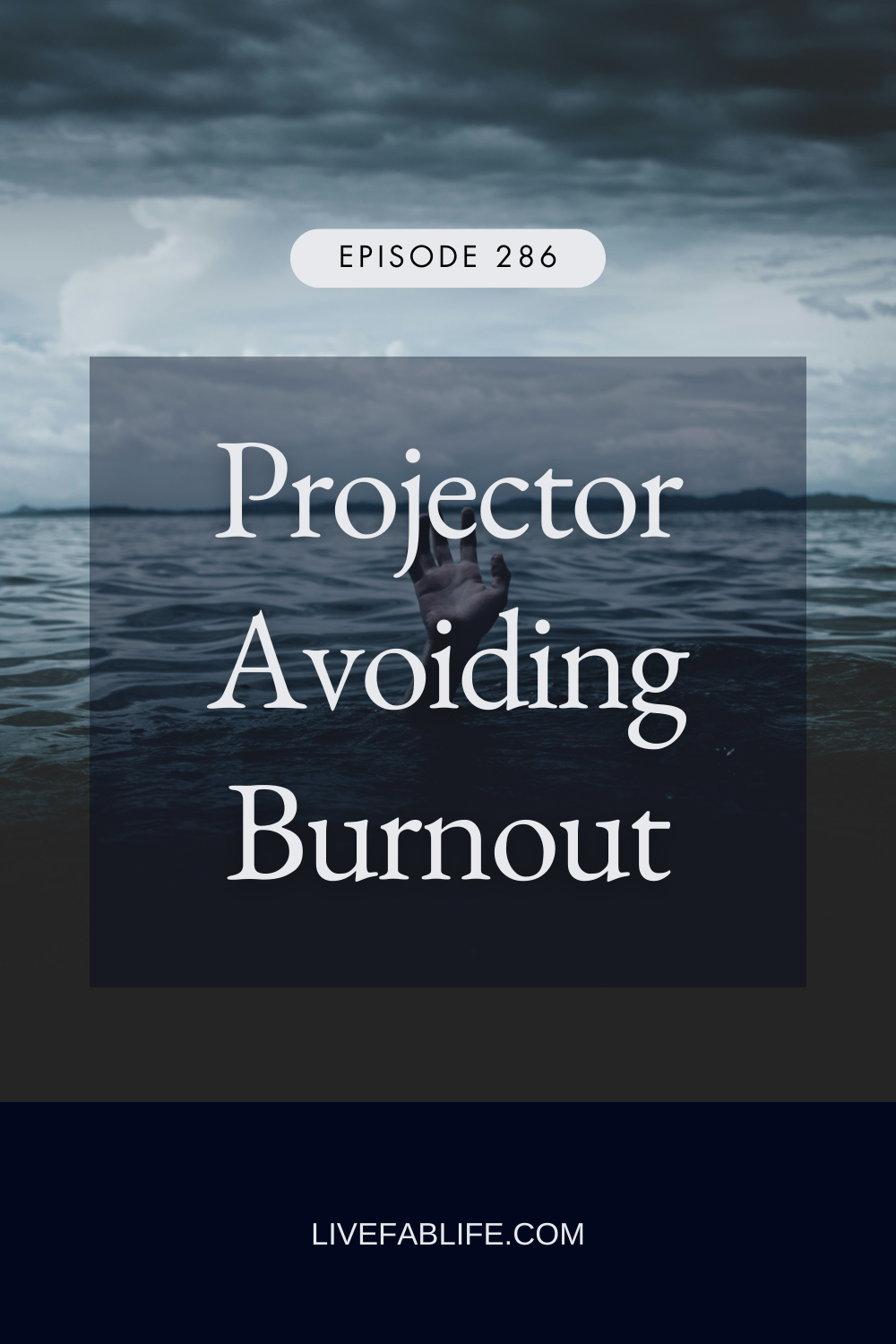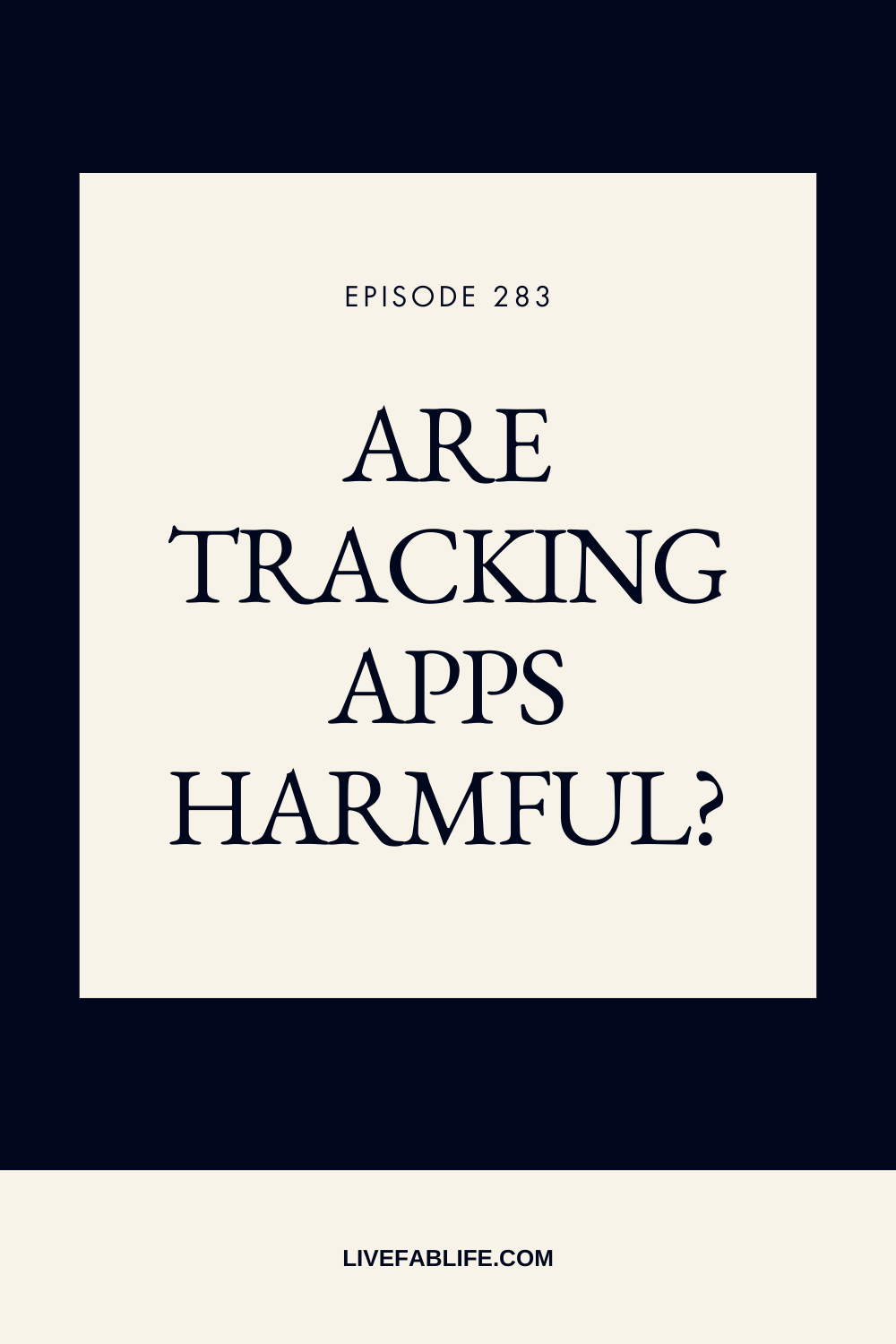Episode 196: Following Your Splenic Authority with Victoria Jane
I’m thrilled to be joined by returning guest, Victoria Jane! Victoria first appeared on the show back in Episode 130 and has since become my Human Design mentor, having been a part of her inaugural Human Design Coaching Certification program.
If you’re a Projector or Manifestor, then you may have a Splenic Authority (the only two Human Design Types this is possible for). The Splenic Authority is all about spontaneity, being in the moment, and trusting your intuitions - having a knowing that can’t always be explained.
In this episode, Victoria joins me for a candid conversation on our Splenic Authorities. You’ll hear us discuss:
The similarities and differences in our Human Design charts as both being Splenic Projectors
How we’ve each learned to recognize our Splenic intuition
How we’re both guided by our Splenic Authority and how it’s influenced life decisions
Listen to the Episode:
Mentioned in the Episode:
Episode 130: Finding Ease & Alignment Through Human Design with Victoria Jane
Episode 184: Your Human Design Authority - How Do You Best Make Decisions?
Episode 194: What Having an Emotional Authority Feels Like? with Sandy Yang
Episode 195: What A Sacral Authority Feels Like with Brent Reichenberger
Connect with Victoria Jane:
Connect with Victoria on Instagram
Connect with Naomi:
Share the Episode:
“In terms of bigger decisions, and this is where I think it gets really interesting, to talk about the nuances of the Spleen because all the gates of the Spleen also have a fear side. And fear is what motivates survival. And so I have spent a good amount of time thinking about when I feel a “Splenic no” and if it arises with feelings of fear. ”
Read the Transcript:
Naomi Nakamura: Hello there, my friends. And welcome back to the Live FAB Life Podcast. I'm your host, Naomi Nakamura. And I am so thrilled about today's guest. And I know I say this every week but I really do have awesome guests and they so delight me every single week. So this week is a returning guest to the show. She first joined me back in Episode 130, back in May of 2020. And she's the person who introduced me to Human Design. She's the person who I had my very first reading with. And she is the person whose coaching certification I ended up taking. So, I'm thrilled to welcome back to the show Victoria Jane.
Victoria is a Human Design coach and guide, and she explains Human Design in such an accessible, approachable, but also in a very nourishing way. I love the perspectives she brings. And in this episode, we are here to talk about our authority.
Now, in Episode 194, I have Sandy Yang on who's a fellow student of mine in Victoria's program talking about emotional authority.
And in the last episode, Episode 195, I had Brent on who is, again, also a fellow student of Victoria's talking about what it's like for him to have a sacral authority.
In this episode, Victoria and I both have Splenic authorities. We're both Projectors but we share how we experience our Splenic authority in similar but also different ways. And we talked about how all parts of our design matter and how they all make us who we are. I so love talking to Victoria. She brings such a unique perspective to Human Design, and I hope you enjoy it as much as I did. So with that, let's get to the show.
Hi, Victoria. Welcome back to the show.
Victoria Jane: Thanks. It's fun to be back.
Naomi Nakamura: So much has happened since the last time you were on. I feel like when you were first on, it was a year and a half ago, I was just starting in Human Design and now I've taken your program, gosh, almost a year ago. And now doing readings myself. So you are my teacher, thank you for being here.
Victoria Jane: Oh, thank you. It's so funny because I can feel internally how I'm like, "How do I feel about being called that?" My relationship to labels, maybe it's to undefined G. I'm like, "Oh, I don't know. We're all just learning together, right?" But thank you so much. And it's been really fun to learn and grow with you.
Naomi Nakamura: So much fun. It's like my favorite thing. For those who maybe haven't yet heard your first episode with us. Can you share some background about who you are and what you do and how did Human Design come to your life?
Victoria Jane: Yeah. Who am I? My name's Victoria, I'm a Human Design coach and, I guess, teacher for those that are Human Design literate because I know you've talked a lot about Human Design on your podcast. I'm a 6/2 Splenic Projector currently on the roof. And how did I get into Human Design? Was that the other piece?
Naomi Nakamura: Mm-hmm (affirmative).
Victoria Jane: So, I found Human Design about four years ago at this point and I was living kind of like your classic Projector situation. I was living like a sacral, pushing a lot over working. I was having chronic health issues come up because of that. And there's always been a piece of me that has loved being a seeker into different... Like did a yoga teacher training, into the crystals as a kid and herbal stuff. But at the same time, given my cultural upbringing, so my parents are immigrants, there was a strong emphasis on academics, always kept that part of me in a very small, sort of sanctioned area.
And there were clear signs that something wasn't totally working in my life. So that's the context in which I found Human Design. And I'm sure you've had a similar experience, just such a light bulb moment of, "Oh my god, my whole life makes sense now. And this explains why I feel different or behind or I've struggled with these certain things that just are so hard for me but don't seem hard for other people."
And it was so validating and reassuring and, I remember feeling like, "Well this is great. This sounds like a great vision of how I want to live my life, like a Projector. But how do I do that? How do I go from where I am now to... " What felt like at the time, "This dream Projector life?" And I'm so grateful to have these conversations and be asked these questions because as I'm saying this, there's two things that are coming into mind.
One is I just got off a session with someone who is a Projector, new to Human Design. And we were talking about these same questions like, "That sounds great. I'm still in the Projector vision of life, but how do I do that?" So that's one thing. And then the other is feeling into the fact that just how far I've come.
Just a couple of days ago over the weekend, I was sitting on the couch resting. And I was like, "Wow, this is really what I was dreaming about a couple years ago." That freedom and the space to rest when I felt tired and share wisdom as a Projector and be asked my opinion about things all the time, right? And receive recognition for that. So I'm just holding all of that at once as we're talking about it. And it's really nice to be able to reflect on it.
Naomi Nakamura: I love it. I love it so much. As a fellow Projector, I can relate so much to that. I know that we had similar backgrounds in tech. And I think I definitely had the feeling out of alignment in the tech world, but I feel like in the past few years, somehow, I've fallen into this opportunity where I've actually been able to lead a very Projector life in the tech world which it's not a common thing. And so I don't take that lightly. But like you said, you sat down and reflected. I do that a lot and I think, "Well, how did we get here?"
So, with that, I'm sure for you, came a lot of decision making into your journey and what path to take and what changes to make and how to come more into alignment with your design. And so in the past couple of episodes I've had my fellow students from your program come and talk about their authorities. We had an episode on emotional authority and what that's like and another episode on what's it like being and having a sacral authority. So not only are we both Projectors, we're also Splenic Projectors so we both have the Splenic authority.
Victoria Jane: [crosstalk 00:06:54] spleen.
Naomi Nakamura: Exactly. And so I really wanted to have a deep dive conversation with you on what that's like. I'm sure while we both have that, it shows up differently for us and I'm curious, selfishly, how does your Splenic authority show up for you and how has it guided you to go from where you were to where you are now?
Victoria Jane: So how does it show up for me? Well sort of like what it feels like now and maybe in the beginning of the journey because in the beginning I had a really hard time even connecting with what is-
Naomi Nakamura: Well [crosstalk 00:07:28], maybe we should talk about what it is first-
Victoria Jane: Should we define?
Naomi Nakamura: Yeah, let's define it first.
Victoria Jane: Okay. And are people familiar with the concept of authority?
Naomi Nakamura: I did episode 184 on authority. So if you're listening-
Victoria Jane: Okay, go back and listen.
Naomi Nakamura: Yeah, go back and listen to it. But essentially it's how we best make decisions for ourselves.
Victoria Jane: Yeah, exactly. And it's different for different people because we have different parts of our design that we have consistent access to. So if I don't have a sacral, then I can't make decisions like Brent, right? But Naomi and I both have our spleens defined. And the Spleen is all about what instinctively feels right. So I always think, when I say instinct, I think of animal instincts. What's this sort of primal awareness that we have about things? And it's often spoken about as this quiet knowing. Which is true but also confusing because most of us have pretty chattery minds. So it's a knowing but it's not the mind. And that's kind of the quick definition. Is there anything you want to add?
Naomi Nakamura: I do want to add that, conceptually, I get everything you're talking about. But putting it into practice in my life, that's a whole ‘nother conversation which I'm hoping we're going to have here. But I also feel like it's very... I don't want to say it's abstract. But I feel conceptually it's a lot easier to grasp in Emotional authority or even a Sacral authority. And I don't want to say that those are easier, because they're not. They're just different. But I feel like in my own personal experience it's been easier for me to grasp those things as opposed to a Splenic authority.
People ask me, "Well, where do you spend your time in Human Design?" In a lot of different places but a lot of it is just trying to learn how my Splenic authority communicates with me. And thus, the crux of this episode.
Victoria Jane: Completely. I completely agree. I feel like it can be elusive the same way if we were sitting in a safari in a jeep trying to spot a wild animal. Sometimes you don't always see it whereas with both the emotional center and the sacral, the other thing is that they're both motor centers so they create an energy that can be felt. And I feel my spleen, I feel it in my nervous system in terms of how, if I feel like something is a little dangerous or if I feel safe and regulated, but it's still not as big of an energy as I subjectively feel like the sacral and emotional center is.
Naomi Nakamura: Yeah. Exactly. And I feel like we just need to take a pause and take a deep breath because that's a lot to process in and of itself right there. Well, I guess first of all, when you first learned about Human Design, how did you first start going about really tuning in to what does it mean to have a Splenic authority and how is this showing up for me?
Victoria Jane: Okay. So at first I actually was just, "I don't understand," in the very beginning. So I like to use the word instinct because the Spleen is about survival and it's one of the oldest centers. But you'll also hear people speak about the Spleen as intuition. Which is true but I think sometimes confusing because then it's like, "Hmm, well how is that different from other kinds of intuition?" And for me, early on, that was part of what confused me because I was like, "I don't know. I think I'm intuitive but I'm not sure?"
Naomi Nakamura: There's a lot of this questioning about-
Victoria Jane: Because it's so quiet.
Naomi Nakamura: It is. And I think I had that-
Victoria Jane: So, for me-
Naomi Nakamura: Question for you. Well, what's the difference between gut instinct and Splenic instinct? And I actually find this question has come up with my own clients as well.
Victoria Jane: Right. So this goes back to the classic... Well, it's classic to me. So we use words in English to mean certain things. And there's like a general definition and then when we get to Human Design, we have to use those same words, but they sometimes mean different or very specific things. So, for example, initiating versus responding. And I don't want to get into that here but those mean very specific things in Human Design whereas if I used it generally. A generator can be "like a self-starter" and good at initiating if they're applying to a job that has those characteristics, right?
It doesn't mean that their strategy is initiating. So similarly with the word instinct, I like to use it specifically for the Spleen because we're talking about survival. And this goes more into the design of plants and animals but all mammals for sure have a spleen. I can't remember. So, the point is that the Spleen is very much related to life and survival intelligence. Whereas the sacral, I think of, as it's like this energy, it's a motor center, right? So when the sacral is a yes or a no and it's responding, I don't think of that as an instinct necessarily. But people can call it that because that's just what we say all the time, right? It's more about definitions than anything. Did I answer the question?
Naomi Nakamura: I think so.
Victoria Jane: Okay. So super quiet early on, wasn't sure if I heard it. I'm a taste cognition and an open taste determination. So I relate to the world through food. I'm very particular about what I want to eat, I know exactly what I want to eat. Also, both taste things coming up here are related to the Spleen too. I can hear people being like, "What does she mean by that?" And I won't get into it. But suffice it to say that for me the easiest way to practice was to ask my spleen, "What do I want to eat today?" Just start really small and start observing, "Okay, what does it feel like when my body is just making a decision from this Splenic instinctive place?"
And then from that, it slowly opened up to more complex things. And once I had more of a knack for realizing and recognizing what my Spleen was or how it sounded because it'll come through as words for me as well. It'll be like a phrase. Maybe two to four words, but it won't be sentences. That's the other thing, once I got a hold on like, "Okay, so this is what it sounds like or feel like." Then I actually could look back in, let's say, three or four years ago and realize like, "Oh, that was my spleen. I just didn't know it at the time because it was so quiet." Should I give some examples?
Naomi Nakamura: I would love some examples but I'm very much relating to that in a non-taste way.
Victoria Jane: Oh wait, please share more.
Naomi Nakamura: Well once learning this and once kind of getting a concept behind what the Spleen is and it's very quiet. I actually feel that I can tune in to it more when I'm alone. And I spend a lot of time alone, especially in the past almost two years. And so that differentiation really helped me to see when is it the Spleen versus an outside influence coming in? But also it's flashes of thought if that makes sense. I'll have a thought come to me in passing that I'm like, "Oh my gosh, that's the answer, that's what I've been racking my brain thinking about." And I literally-
Victoria Jane: Do you get a visual as an external vision person?
Naomi Nakamura: Sometimes I do. I can see it-
Victoria Jane: Yeah. And the flash of thought is very [Ozna 00:14:16], to me, right? Which external vision is related to. And I have undefined and [crosstalk 00:14:23]-
Naomi Nakamura: Yeah, either way. But a lot of times I have this idea or this picture but I can't always communicate it. But I can see it.
Victoria Jane: Right, right.
Naomi Nakamura: And I have over 700 notes in my Apple notes because I have to jot these things down because if not, they'll go away.
Victoria Jane: Well, we both have gate 11.
Naomi Nakamura: And it'll come back especially I find if it's a recurring theme that comes back, it's something that I ignored. Or never took action on.
Victoria Jane: Yeah. And that's the struggle because I have gate 11 a lot in my chart. And this is an active area of development. What ideas do I take down and what ideas do I just let go because it can drive me crazy if I let it. But then also I get such a rush, it feels good to have these ideas and sometimes when I execute on them it's like, "Oh yeah." So it's a really hard one to suss out sometimes.
Naomi Nakamura: It is. And I think it really comes through a lot when it comes to social media for me because I think as people who are trying to establish practices or businesses, there's a lot of strategy people teach you in how to go about doing things and a lot of ways, like, "This is the proven formula." I've dabbled, I've tried them, and people will say, "Well if you want to get more clients, whatever, you need to be active in social media and this is the way you do it. And you have to post all the time and be consistent." I'm not consistent. I've tried. It literally feels like resistance to me. But sometimes I'll get a flash of inspiration where I need to say this, I have to say it, whether it's in a story or a post or something like that. And when those moments happen and when I do make that post or story, the amount of feedback and engagement I get is validating in that it was a Splenic authority moment.
Victoria Jane: Yeah, so good. I forgot the examples I was going to give now. Let me see if I can remember. Okay, so for food, just to make it really concrete because I can hear someone thinking more abstractly like, "How are you deciding from just [inaudible 00:16:25] older sort of mental way versus the spleen?" And for me, it would show up as, "Oh, I really want to eat this thing that I got from, I don't know, the farmer's market. Even though logically I should eat the kale that I bought that's about to go bad." Something like that where it's just purely just because I want to. My spleen/me is very drawn to the dandelion greens instead of the kale.
In terms of bigger decisions, so this is where I think it gets really interesting to talk about the nuances of the Spleen because all the gates of the Spleen also have a fear side. And fear is what motivates survival. And so I have spent a good amount of time thinking about when I feel a Splenic no and it co-arises with feelings of fear. Are those feelings of fear valid/okay? Or are they things to work through? And this is not specific necessarily to all Splenic authority.
To me, this is just my personal experience which is Splenic authority and also my own conditioning and karmic solider in me, whatever, a big lesson for me looking at past decisions where I was getting Splenic nos but I didn't know it at the time is I would feel sort of a contraction or, "This feels off. I don't like this. This feels scary." So there's that, "Oh, fear." And I would interpret that, and again this is my own thing, but I would interpret that as like, "Oh, interesting," because I'm a growth junkie in some ways.
I'd be like, "Oh, well that's fear so let me see if I can analyze it, journal about it, work through it, it must be me, let me fix it, let me grow through it." When actually it was just a no, like a Splenic no. I just didn't realize it at the time because it was so easy to take that fear or just comfort and almost co-opt it and manipulate it into a decision that other people would like so I would go along with that where my mind thought that that would lead to success.
Naomi Nakamura: Do you have any specific examples of that or situations?
Victoria Jane: I mean, I think the easy one is work stuff, right? So it's like, "Oh, this opportunity or this project maybe feels a little bit off." But maybe that's just because I need to grow more in this area. So let me do it. And then also with different relationships with people, I think I'm better at this now. But I would certainly prefer to avoid confrontation. And so in the past, it would be, "Oh, if someone's upset with me, I must be the one that's not seeing the situation clearly." When my Spleen was saying, "No, this is off."
And here's the other thing, because the Spleen is [inaudible 00:18:59] knowing but it's not the mind, right? So I have a defined head and throat and have split definitions. So my Spleen might give me a pang of like, "This dynamic is off." And it can't explain why but then my mind would try to figure it out and then my mind would then explain maybe something that would conflict with my Spleen like, "No, no, no. This situation's fine." And it's actually you, what beliefs do you have that are reflecting back to you in the people around you and what growth can you do?
And yes, there is this certain element of that being valuable too. But that can't be 100% of the equation in relationships with people, right? Was that example clear enough? Sometimes as I'm sharing them I'm like not sure if they're making sense.
Naomi Nakamura: Well you said a lot of things there that... And again, I am also a Human Design [inaudible 00:19:39] so it makes sense to me. But you said a couple of things there, you said, first of all, there can be parts of your design that can be in conflict with each other.
Victoria Jane: Kind of but when people say that then I think they're like, "Oh no, it doesn't make sense." But it does because it's all you.
Naomi Nakamura: Uh huh. And the other thing there you said the Spleen is not always explainable. And so let's talk about that for a minute because this came to my mind when you were talking about eating the dandelion greens versus kale because I feel like I make a lot of impractical decisions which I sometimes criticize myself about. I know I'm making an impractical decision but I can't not make this decision.
Victoria Jane: Like what?
Naomi Nakamura: Again, I want to order takeout versus what I have prepared to eat. That's in like the simplest form. In work, I really should be doing this but I really don't have the energy for it and my energy is really drawing me to do this other thing. And really just day to day things like that.
Victoria Jane: Yeah. So how do you navigate it then now, knowing your design?
Naomi Nakamura: I go with my impulses and my instincts. The other stuff will work out if it's meant to be which, again, if I'm using logical thinking, may not be the most logical or sensible approach. But I feel like it helps me, ironically, be more productive because I'm actually using my energy to do what it wants to do as opposed to forcing myself to do something where it's going to take even longer because I don't want to do it. And then putting something out there that's like not even my best work. And, of course, we all have things we don't want to do. And there are things that we have to do that we don't want to do but in terms of timing, that's the one way that I've kind of leaned into my authority as well.
Victoria Jane: With timing?
Naomi Nakamura: Timing.
Victoria Jane: Yeah. And not being like, "Oh, this was the schedule." And instead being like, "Okay, not really feeling this right now. Let me do something else." And then going back. The other thing that was coming to mind as you were giving the example of ordering takeout versus whatever I've meal prepped, is that this is why I think it's really important to emphasize to people listening that only you know for yourself what's right because I can think of, say, the Projector that's super exhausted. That's like, "I'm just going to order takeout," because you're just too tired to maybe cook something that would actually be better for them. And that's different than their Splenic authority, right? But from the outside it might look the same because it's a "impulse." And so that just feels important to illustrate.
Naomi Nakamura: Yeah. And that goes back to... And my clients, I'm sure, are tired of hearing me say this but I say it often that so much of this work is self-observation with nonjudgement. That's essentially what this whole thing is - is just observing ourselves and really doing it in a nonjudgmental way because they think at the crux... I mean, the whole point, at least for me, of Human Design is learning how to trust myself. And then as a result of that, learning how to love myself in a more real way than just hearing about somebody talking about, "Oh, let's practice self-love." I think it's in a really deep way.
Victoria Jane: In a really deep way and actually doing it sometimes is hard and triggering, I'll say. Like deciding to do less, that's something I'm kind going through another round of right now. I mean, I've been through this but peeling off another layer, it's like, for me, I'll say there's still a lot of societal beliefs that I come up against. And it's, "Well, I'm either going to experiment this and see what happens and see how it works and be okay with it. Or not." And that's a choice that we get to make depending on the level of how comfortable we feel taking that on because I'm definitely not saying go change your whole life when you're not ready for it.
Naomi Nakamura: Exactly, exactly. So let me ask you this, and I feel like that's kind of a good segue, when it comes to your Splenic authority... I'm not quite sure how to phrase this, has it been a different experience for you seeking out your authority to help you make good decisions versus a decision coming to you in the moment?
Victoria Jane: I am going to answer it before I do, which one do you fall into? I'm curious.
Naomi Nakamura: I haven't consciously made any big decisions but they kind of came to me. And they kept coming to me. And I think-
Victoria Jane: Okay, yes. And you don't ask like, "Spleen, what do you think?" But if you're deciding something, something will come through and it's probably from your spleen.
Naomi Nakamura: Or even when I wasn't even seeking to make a change but it comes through over and over again to the point where like I can't ignore this anymore.
Victoria Jane: Yeah. So for me, it's the latter where it just comes to me. But the reason why I wanted to ask you first is because the way I would explain why is my route to Spleen definition is an unconscious channel. So for me, to have my mind be like, "Spleen, what do you think?" Doesn't work that well because my spleen's definition is coming from the body site. So I don't have that same level of awareness that I think talking to different people with Splenic authority, the ones that have more conscious definition there, some people I talk to, and they're like, "Oh yeah, I totally hear my spleen." And I remember early on when I was giving readings being confused. I was like, "Wait. How are some people so connected to their spleen?" But for you, Naomi, you have [crosstalk 00:25:05]-
Naomi Nakamura: I'm looking at my chart right now.
Victoria Jane: I know.
Naomi Nakamura: Why does my chart say [crosstalk 00:25:07]-
Victoria Jane: It's an integration of it. So I think you have the 48 in red and then the 16 in black.
Naomi Nakamura: Yes and 16 in black.
Victoria Jane: So that's why I was curious. I wanted to get your answer first before we talked about this because you actually have to integrate the body and the mind together, right? So anyway, point being, even imagining talking to myself and being like, "Spleen, what do you think?" Is laughable. I don't think it would do anything. But I do know people who relate to themselves in that way and the Human Design space, and I've seen them talk about, "Oh, the Spleen says this." And I'm like, "Okay." Whereas, for me, it's coming much more at... It's really hard to articulate but going back to the example of the impulse to order takeout, I can see how saying that someone might think, "Oh, you got the idea to order takeout."
But for me, if I Splenically wanted to order takeout, it would almost be like... And again, this is colored by my taste cognition, blah, blah, blah, but I think I would almost get the taste of what I would want to order in my mouth. And then maybe my hands would just go to my laptop and I'd pull up the menu. It wouldn't come through as an idea and even in this question that you're just asking, I wouldn't consult with my spleen. It would just tell me. But I'd have to really be paying attention to hear it. And that's why, to go back to the earlier piece, and how do I relate to my Spleen and the journey to hearing it, it was definitely more challenging earlier on because I was operating out of my mind a lot more. Whereas now I have certainly more space than I did then to let my body communicate with me.
Since I've known you, you kind of made a big life changing in moving from California to Arizona. What role or how did the Spleen help guide you, first of all, to decide to make the move? And second, where to end up?
Okay, this is a good one because there's lots of Splenic moments in here. I made a big move from California to Arizona, that was one change, and there was a lot of things that happened for me last year. I was also leaving a long-term relationship. And I mention that because there's a parallel timeline with deciding to move. So I moved in March of 2021 and I think I had the idea that I'd want to move maybe summer of 2020. And at first it was just that, just this nudge of probably going to move, don't really need to be in California.
Naomi Nakamura: You don't necessarily have family or deep ties-
Victoria Jane: No, I do.
Naomi Nakamura: Oh, you do to Arizona?
Victoria Jane: Oh sorry, not Arizona. In California. Yeah, yeah, yeah.
Naomi Nakamura: Because I feel like that's such a random place for you to move to. It's like-
Victoria Jane: Yeah. Well this is more I think the undefined G center. I can weave that in a little bit. So I'll say early on I don't even know how much was... It was probably Splenic pain coming through to move and then my mind sort of chewing on it because it's not that we want to completely abandon our minds. The mind is helpful for-
Researching things and logistics and [crosstalk 00:27:51]-
Naomi Nakamura: I honestly don't think... Well maybe people can but I don't know if I could.
Victoria Jane: Yeah, yeah, because there's a whole process to deciding to move and where and all that. So there was this general seed planted but it didn't really become urgent until... You remember the fires were pretty bad last year?
Naomi Nakamura: Mm-hmm (affirmative).
Victoria Jane: And that kicked off a sense of urgency that was also very Splenic where it was the survival part of me was like, "Okay, it looks like Jurassic Park right now. This is very weird. I don't want to be here." And so that was a really clear Splenic message for me. And then also I'm a 6/2, I'm fully on the roof but I was still transitioning onto the roof at that point. And...
Naomi Nakamura: What do you mean by in the roof, just for people who aren't familiar with-
Victoria Jane: Yeah. As a sixth line profile, we go through these different life phases. And the first phase of your life, you act like a third line profile, we're experimenting, we're bumping into things, and then the second phase of life we pull back and we start kind of observing. And for me, it feels like I don't have to be in the mud wrestling around as much. And so this second phase in Human Design, we call it being on the roof because it's like we kind of escape up and watch down below. So that is another element to this and this is how our designs are all of us, right? Because it essentially feels like I'm a different person now. And not to say every sixth line goes through this but a change in location, I've seen a lot of sixth lines going through when they change life phases, because we're like, "Okay, set change." Right? That's true.
Naomi Nakamura: It's funny you say that because I had Sandy on a couple episodes ago and we're both 1/3 and I remember saying, "Don't you wish you were a six sometimes?" And [crosstalk 00:29:28]-
Victoria Jane: Oh my god, really? Why?
Naomi Nakamura: Because we constantly feel like we're in this trial and error of life.
Victoria Jane: Oh, oh, like you want to graduate out of the third line. [crosstalk 00:29:39]-
Naomi Nakamura: Exactly. We want to graduate and go to the sixth line at least for a little bit to sit back and observe and just kind of relax for a little bit. Sorry that was a little distraction there.
Victoria Jane: No, that totally makes sense and I get that feeling because I was a third line too and it was like life keeps happening. So there's the move and I think also being a 6/2 but I didn't know where. And as an undefined G, I don't innately have a sense of direction. And I mean that both literally in this case with moving... Or sorry, figuratively, in this case of moving. And literally, because I can get lost real good. I've learned how to read maps. So what I've realized is whenever I've gone somewhere in my life or discovered something that's been really instrumental to my path, it always gets put on my path by somebody in my life. And so this is very different from the fourth line but I feel like I almost bump in to other defined Gs that throw something out. And I'm like, "Oh, yeah, I didn't think of that. I like that direction."
And then of course Spleen gets to decide. But it doesn't come from within. And so I was thinking about moving and I had been talking to somebody in an Akashic Records session who threw out some ideas. And I was like, "Okay, I guess I'll visit some of these places." Sedona happened to be one of them. So then I came here and I got a taste of what it was like and it felt good and spacious and my nervous system felt relaxed. And then I moved. I think that answers the question, right? So the Spleen played a role but so did the undefined G in terms of where and the guidance with direction. And then also, I think, the context of the sixth line and in terms of environment, I'm a shores person. So you would think at first, you hear it and you're like, "Oh, maybe you should have stayed in California by the beach."
Naomi Nakamura: Because of the beach.
Victoria Jane: Yeah. Well you know what I realized? This is a realization from a couple months ago when I was back in California, even though I/we have lived in the Bay for a while, it wasn't like I was at the literal shore all the time. But since moving here, I've missed the ocean and dreamt about the ocean. And when I was back in San Francisco in August, I saw the skyline and it brought back this really strong memory of all the times in every single office that I worked in of where I could see the ocean and I realized, "Oh, actually, I've had really strong shores environments in ways that I didn't even realize." However, now, even though I'm in the desert, it's still a shore because I can look out the window and I see the sky and one of the mountains here. So I make sure to be out and get sunsets and other transition points which is really what shores is about too. So that's another element of it.
Naomi Nakamura: It really, I think, lends to the depth-ness of Human Design. We can follow Instagram accounts and learn about our type and all of that and we should. That's really what foundationally we need to lean into but there's so many things about each one of our designs that makes us so unique. And I just love it so much. It's like you and are both Splenic authorities, Splenic Projectors but the experience is so different adding on the profile lines and the environment and the cognition and determination, all those things, that's what makes us unique.
Victoria Jane: Mm-hmm (affirmative), and it's so fun, right?
Naomi Nakamura: It's really fun. I mean, it's fun to obviously dive in to our own designs but also look at other people's designs too.
Victoria Jane: Yeah, totally. There's something in the beginning that you said that I was curious to hear more about which is how you found a way to live the Projector life within your job in tech and that's a rare thing. And one thing I want to say about that is it's a rare thing and that makes me want to stay there. I mean, obviously do whatever you want but I think one thing that I remember thinking when I was in tech was the way it's designed where everyone's expected to work in a very similar way, we don't actually get energetic diversity. We don't get essentially Human Design diversity.
But as Projectors we have such a valuable viewpoint to offer and so we need all of us to be in all these different places, right? And to own and push for what we actually need because I think there's sometimes a lot of, at least for me at the time, "It seems too hard to fit into this. I just want to leave." That's not the solution either.
Naomi Nakamura: Yeah. I will say that it ebbs and flows. I feel like I'm coming out of a low moment in terms of that because I have to say I'm in a very unique position and a lot of times I feel like it's not sustainable and the rug's going to be pulled out from me at any time. But I am in a role in an organization that doesn't traditionally have my role. And so some people might take a look at the organization and be like, "Why is Naomi here? Why do we have a program manager in this product management organization?" Because traditionally that role is not here. But at the same time, and I don't mean this in an egotistical way, I know the value that I provide. And I know certain people in my organization recognize the value that I provide.
And I think, and this is pure... I really do think it's luck, that I've been able to work from home for now almost 10 years, almost a decade. And because I'm in the role that I'm in, I actually have a lot of control over not just my schedule but the schedule of the group. So, one, I'm able to provide a lot of perspective and, to a certain level, guidance around certain things. I'm certainly not the subject matter expert of the technology that we're in. But I'm able to provide some organization and some guidance and perspective. But I also control the schedules so I'm also able to allow myself a lot of rest. And not every day has that but it's definitely not the 16 hour work days that, early in my career, I definitely put in those hours.
Victoria Jane: Yeah, no that's great for you to share, I think. And that wasn't even my question too. My question though is what feelings did you have about shifting from maybe that original point to the current? Because I think that's what I see with a lot of Projectors that are newer to Human Design is, "Okay, I want to make this change. But then is it okay? Will I still find success?" All those things.
Naomi Nakamura: Right. Well first of all, unlike a lot of people who have side hustles, I've never felt that pull to get rid of my full time job. I've never had that desire. And maybe there is some fear there and maybe a belief that I can't sustain myself financially. Maybe, maybe not. But I truly do enjoy the full time work that I do. But in terms of that shift even within the job that I have, for a long time I really questioned my self-worth. I felt like I wasn't contributing enough because I wasn't putting in the long hours, that I wasn't doing my share. Or that I'm getting this salary for doing something that I feel like is not even work. But I was really, really, I guess, lucky that at the time I had a manager who actually is a Manifestor because we're actually...
She's not my manager anymore but we're still really good friends in the company. And I did Human Design reading for her. And she is a true Manifestor and without even knowing that that's how she's lived her life. And so she really instilled in me the recognition that actually these... Again, knowing nothing about Human Design, these are your gifts, and this is how you contribute and the group would not be able to function effectively as we do without your contributions.
Victoria Jane: Does she have a defined ego? Do you remember? That sounds so empowering, so that's why I ask.
Naomi Nakamura: I think she does, yeah. I think she does. Like I said, she's a 1/3 Manifestor. And, again, this was probably about... What is it? 2021. I almost have to think about what year it is. It's probably about six or seven years ago. And so thankfully we had that relationship where we're able to have those type of transparent conversations and where I was able to express those feelings to her and she was able to... I didn't feel like she was blowing me smoke, how some managers do. I really felt that was her true feelings. And then I looked at our group that we worked with and it's not the group I work with now. If anybody's listening, I'm not talking about anyone I work with now. But I really looked at the group that I had and I recognized that they actually did not have the skills that I brought to the table and they actually could not move themselves forward without whatever support I gave.
Victoria Jane: So good. So, there's that pep talk for any Projector that needs to hear it.
Naomi Nakamura: Again, I did it within the same job that I have. Of course there's been changes over the years but I didn't go quit my job and go do something totally different.
Victoria Jane: Yeah, yeah. I mean, I even enjoyed hearing, "Oh, I'm not alone and is what I'm doing valuable? Is it even helping?" Yep, it is. And I don't have to show up maybe with a 16 hour work day or whatever it is. And it's still valuable.
Naomi Nakamura: Yeah, and the one thing Human Design has done many things for me. But it's also helped me to have more perspective in how I view other people. Have more grace for them and especially ones that I view as very different from me in terms of how we operate, our work styles, communication styles. And I can understand now and have a deeper appreciation that there doesn't need to be animosity or anything like that. We have different styles, we have different designs and there's nothing wrong with that.
Victoria Jane: Yeah, totally. All of our designs are needed.
Naomi Nakamura: Exactly. Well this has been such a fun conversation.
Victoria Jane: Yeah, it has.
Naomi Nakamura: So enlightening. For those who are Human Design nerds like us, you run a Human Design coaching certification program. Which I took the first round of, it was amazing. Are you running it again anytime soon?
Victoria Jane: Soon is relative. But yes.
Naomi Nakamura: Right, well and this is an evergreen episode that somebody might hear this six months from now-
Victoria Jane: Totally.
Naomi Nakamura: So how can people find out more about you and your offerings?
Victoria Jane: You can find me on my website, victoriajane.co. And on Instagram, @victoriajane.hd. And the program that Naomi took; the Human Design coaching cert will be running in the future again at some point. In the past, it's always been live. I think I'll be coming out with a self-paced version too because a lot of people have been asking/inviting me for that so depending on when you hear this, when this comes out, definitely in early 2022, there'll be that option. And then at some point there will be another live version if you are looking to interact with other people. I mean, that was my favorite part. Just all the conversations in the group where you can hear other people with their designs chime in. So if you're looking for a comprehensive understanding of not just you're own design but the system. It's like my favorite thing to talk to people about this. So you can find all of that there.
Naomi Nakamura: And I will link to your website on the show notes, and everybody has their own flavor of talking about Human Design, well just really about everything, anything. But I really love how you make Human Design feel so accessible.
Victoria Jane: Oh, thank you.
Naomi Nakamura: I love the perspective that you share. Even our conversation today, I've heard a lot about what you said before in our trainings and in our group calls and our graduate calls and all that. But at least I can never get tired of hearing things said over and over again.
Victoria Jane: Yeah, because it's like who we are when we listen to that information is different, right? So maybe a new kind of perspective comes up. The other thing that I'll add is I am going to be coming out with some video content as well. And so, as a Splenic authority, I think that'll be in particular something that I feel like will be really valuable. So the website will be where all of that information is and maybe we can set up in the show notes a discount code for anyone listening.
Naomi Nakamura: Of course, of course. And you have a podcast too.
Victoria Jane: And I have a podcast too. So [crosstalk 00:41:23]. There's a lot more content that'll be there.
Naomi Nakamura: If you have a one line like I do and you just can't get enough information, it's funny, so you're a 6/2 but I interviewed Sandy and Brent, and I was like, "Oh, the three of us are all 1/3s."
Victoria Jane: Yeah, yeah, I know. It's funny. There's a lot of one lines that come into the system and are like, "Tell me everything."
Naomi Nakamura: That's exactly how I was. I think after my very first reading with you, I was like, "I need the book. I need the book." And I bought the book and it's this 50 dollar book that's only in printed form, there's not even kindle. And you read the book and you're like, "I don't even know what this book is saying." It's like, "Oh, 50% of the words, I don't understand."
Victoria Jane: Exactly. Yeah, and that's something that I really like about HGCC as well is we use that book because I want you to be able to understand it. But we also talk about it in maybe a more accessible way too. So you can kind of play with both and you're free to start to studying more if you want to go deeper.
Naomi Nakamura: Yeah. And I feel like in professional coaching, they have people's coaching trees about, "This coach came from this." And I feel like I'm in your tree coming from you and I actually have received that feedback from my clients saying, "Wow, you explain things in a really accessible way." Or, "I actually had a reading a year ago with someone and I didn't get anything they said so the work is trickling down."
Victoria Jane: Oh, thank you. Well I'll just quickly respond to that because I've had those readings too earlier in my journey where I'm like so excited and, "Tell me what this means." And then halfway through I'm brain dead because I'm like, "I don't know what you're saying." And hopefully I don't lose connection with that. But easier said than done because the more we learn, we can't unknow it. But I just feel like it's so important, right? That it makes sense.
Naomi Nakamura: Yes.
Victoria Jane: Thank you for sharing that.
Naomi Nakamura: Well, thank you for coming on and sharing your time and your wisdom with us. I appreciate it.
Victoria Jane: You're so welcome, it was my pleasure.
Naomi Nakamura is a Health x Human Design coach who’s creating a healthier society through aligned energy.
She blends a bespoke mix of Functional Nutrition and Human Design to help others shift into alignment to leverage and correctly manage their energy to support their body, mind, and spirit.
She believes that when we embrace our authenticity and lean into our bio-individuality, we naturally live a life of freedom, empowerment, and optimal health.
Naomi resides in the San Francisco Bay Area and can often be found exploring the area with her puppy girl, Coco Pop!
Connect with Naomi on: Instagram
| Pinterest










